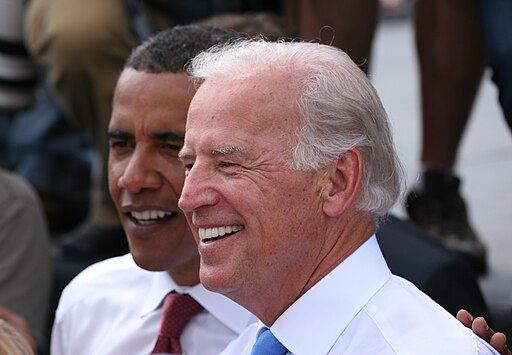The largest prisoner exchange since the Cold War has freed several high-profile detainees, but the family of a jailed American teacher demands answers from the Biden administration
In an unprecedented prisoner swap between Russia and the West, several high-profile individuals, including UK-Russian dual citizen Vladimir Kara-Murza and American journalist Evan Gershkovich, were released. This complex diplomatic manoeuvre, the largest of its kind since the Cold War, involved around two dozen people from countries such as the US, Germany, Poland, and Belarus. However, the exchange has sparked outrage from the family of Marc Fogel, an American teacher serving a 14-year sentence in Russia, who was excluded from the deal.
The swap, which took more than a year of secret negotiations, was hailed by President Joe Biden as a significant diplomatic achievement. Biden, alongside relatives of the freed Americans, expressed his satisfaction with the outcome, calling it a “feat of diplomacy.” Vice President Kamala Harris, the presumptive Democratic presidential nominee, also expressed her relief and comfort at the successful exchange.
Despite the overall success of the swap, the omission of Marc Fogel has left his family devastated and angry. Fogel, who has been imprisoned in Russia since August 2021 for possessing 17 grams of medical cannabis prescribed to him in the US, was not included in the exchange. His family, led by his 95-year-old mother, Malphine, has been actively campaigning for his release, even staging a protest outside the White House in July 2023.
Fogel’s family called his exclusion a “glaring injustice,” suggesting that he was overlooked because he is not wealthy, famous, or connected to powerful patrons. They criticized the Biden administration for abandoning him and demanded immediate action to secure his release. The family stated that Marc’s situation has been met with “stonewalling, double standards,” and that they refuse to remain silent, vowing to continue their fight for his freedom.
A White House official responded to the family’s concerns, acknowledging their disappointment but explaining that the negotiations were extremely challenging and that Fogel’s inclusion was not possible. “You do the best you can and you get what you can,” the official said, reflecting the difficult realities of international diplomacy.
This prisoner swap, while a notable diplomatic victory, has underscored the complexities and moral dilemmas inherent in such negotiations. The decision to exclude Fogel has sparked a debate about the priorities and values of the Biden administration, particularly in an election year where foreign policy achievements are crucial.
Analysis:
Political:
The prisoner swap represents a significant diplomatic achievement for the Biden administration, particularly in an election year. It demonstrates the administration’s ability to negotiate complex deals with adversarial nations like Russia. However, the exclusion of Marc Fogel has opened the administration to criticism. Some political analysts suggest that the decision could have been influenced by public perception and the desire to secure the release of more high-profile individuals who could bring greater political capital. The situation has also highlighted the difficult choices and compromises that come with international diplomacy, where not all parties can be satisfied.
Social:
Socially, the case of Marc Fogel has resonated deeply with the American public, especially with communities advocating for justice and fair treatment for all citizens. The perception that Fogel was excluded because he lacks wealth, fame, or connections has struck a chord with many who feel that the system favours the privileged. This has sparked conversations about fairness and the role of social status in governmental decisions, particularly in situations involving citizens imprisoned abroad. The public outcry from Fogel’s family and supporters reflects broader societal concerns about equity and the responsibilities of the government to all its citizens, regardless of their status.
Racial:
While Marc Fogel’s case is not directly tied to racial issues, it does open up a dialogue about the broader treatment of individuals in international conflicts and negotiations. There is a perception that race, along with socioeconomic status, can influence which cases receive attention and which do not. The fact that many high-profile cases involve individuals from specific racial and ethnic backgrounds has led to discussions about whether certain groups receive preferential treatment in diplomatic negotiations. This situation has added to ongoing conversations about racial equality and justice in the US.
Gender:
Gender dynamics in this case are less prominent but still present. The fact that Fogel’s mother, a 95-year-old woman, has been leading the charge for his release brings attention to the roles women often play as advocates and caregivers in situations of injustice. It also raises questions about how gender might influence public perception and government response in such cases. Additionally, the gendered aspect of empathy and advocacy—where women are often seen as the emotional and moral voices in such struggles—plays into the narrative surrounding this case.
Economic:
Economically, the exclusion of Marc Fogel from the prisoner swap has highlighted the intersection of class and justice. Fogel’s family has argued that his lack of wealth and connections contributed to his exclusion, raising questions about how economic status influences who receives governmental support in international disputes. The situation underscores the broader economic inequalities that can affect access to justice and the extent to which individuals are prioritized in international negotiations. The criticism directed at the Biden administration for potentially favoring more high-profile individuals also reflects concerns about how economic power and influence shape global diplomacy.
